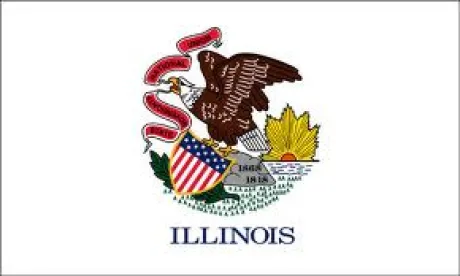The Illinois Supreme Court recently held that the presence of an employee’s home office was not sufficient to establish venue in Cook County for a negligence action arising out of a vehicle accident in Ohio. Tabirta v. Cummings, et al., 2020 IL 124798 (Ill. Oct. 22, 2020). Reversing the trial and appellate courts, the Court held that having a sole employee with a home office in Cook County did not establish an “other office” of the corporate defendant for purposes of the venue statute, 735 ILCS 5/2-101(a), and that the employee’s activities and the company’s minimal sales in Cook County did not meet the “doing business” prong of the venue statute.
The underlying negligence action arose out of a collision in Delaware County, Ohio, in which the plaintiff suffered severe injuries after his truck was hit by a tractor-trailer owned by the driver’s employer, Gilster-Mary Lee Corporation (GML). The plaintiff, who was a Cook County resident, brought suit in Cook County against GML and the other driver, who was not a resident of Cook County. GML is a Missouri corporation with a principal place of business and registered agent in Randolph County, Illinois.
GML filed a motion to transfer venue out of Cook County, as did the driver, arguing that they were not Cook County residents and that the plaintiff could not meet the requirements of the venue statute, 735 ILCS 5/2-101 (West 2016). The plaintiff argued that venue was proper in Cook County because another GML employee, James Bolton, had a home office that was an “other office” of GML for purposes of the venue statute, or alternatively, that GML was “doing business” in Cook County such that the other prong of the venue statute was satisfied.
Limited venue-related discovery was conducted, which established, among other facts, that 0.19% of GML’s sales were made in Cook County in 2016 and that the company did not own, lease or occupy property in Cook County. In his deposition, Bolton testified that he had never had a client visit his home for any reason, largely conducted business by phone or e-mail from his home, and made just two hour-long visits per year to a client in Cook County.
The circuit court held that Bolton’s home office was an “other office” of GML, “because he serviced clients on behalf of his employer from his Cook County residence.” But the trial court rejected plaintiff’s alternative contention that GML was “doing business” in Cook County, based on the “proportionally low quantity of sales to Cook County customers.” The appellate court affirmed the circuit court, holding that the facts established that Bolton’s residence was an office of GML and that venue was proper in Cook County. The appellate court did not address the “doing business” prong of the venue statute.
The Illinois Supreme Court in an opinion by Chief Justice Burke reversed the appellate court, held Cook County was not a proper venue under the statute, and remanded to the circuit court “with directions to transfer the cause to an appropriate venue.”
The Supreme Court began its analysis by noting that the venue statute reflects the legislature’s view “that a party should not be put to the burden of defending an action in a county where a party does not maintain an office or do business and where no part of the transaction complained of occurred.” (Quoting Bucklew v. G.D. Searle & Co., 138 Ill. 2d 282, 289 (1990) .) Given that the accident occurred in Ohio and the defendants are not residents, venue in Cook County could be proper only if GML had an “other office” or was “doing business” there.
The Court’s analysis of the “other office” prong of the venue statute focused on whether Bolton’s home office could be considered an office of GML. The Court held that GML did not “purposely select” a fixed location in Cook County when it hired Bolton. “GML hired a person; it did not select a new location for conducting its business activities.” The Court reviewed the facts related to Bolton’s home office and concluded that the fact “that Bolton conducted work for GML from his home office, standing alone, is insufficient to corroborate plaintiff’s claim that the home was an ‘other office’ of GML.”
As for the “doing business” prong of the venue statute, the Court concluded in short order that GML was not conducting business in Cook County, based on its minimal sales, lack of property ownership or use, and overall lack of business activity in the venue.
In a short special concurrence, Justice Kilbride wrote that he agreed with the majority that Bolton’s home office was not an “other office” of GML under the venue statute. However, he also wrote that “our holding should not be read to imply, or even to suggest, that we would reach the same conclusion in all cases involving an employee’s use of a home office.”
The Tabirta opinion should offer some comfort to businesses in the COVID-19 era that their Illinois work-from-home employees are not necessarily establishing venue for lawsuits against the company in the counties where they live, but where the company does not otherwise do business. However, as Justice Kilbride noted in his special concurrence, the inquiry will remain fact-specific as to whether an employee’s home office may be an “other office” for the venue statute.




 />i
/>i

